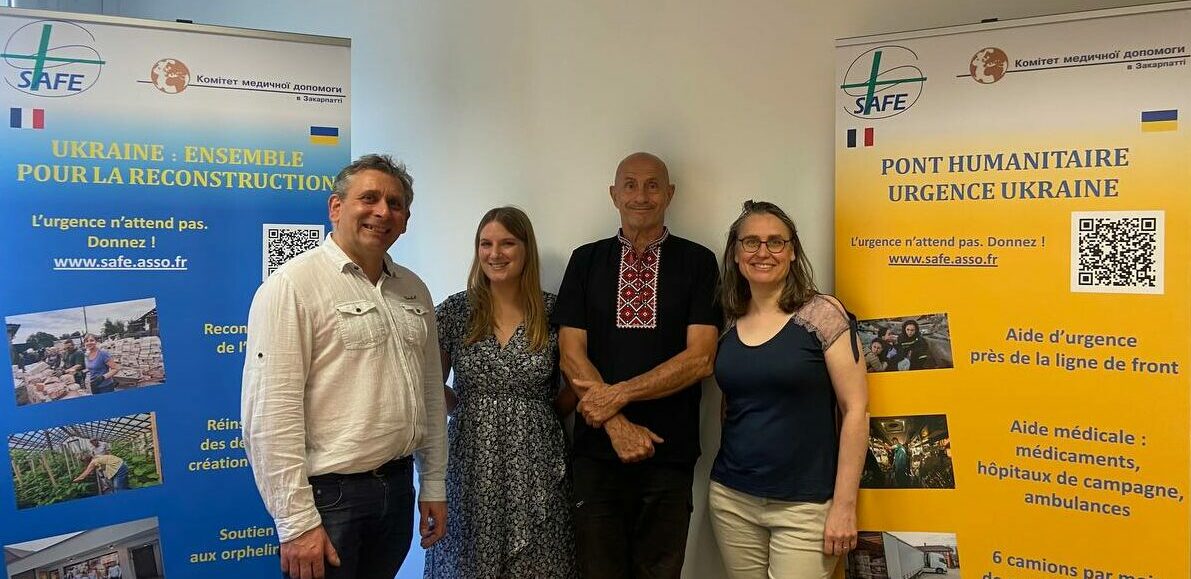This Tuesday, July 16, a press conference was held to raise public awareness and call for mobilization in response to the energy crisis affecting Ukraine.
Catherine and Jacques Duplessy, from the French organization SAFE, in collaboration with Nataliya Kabatsiy, Director of the Transcarpathian Medical Aid Committee (CamZ), which has established a humanitarian bridge between France and Ukraine and sent over 200 aid trucks since the war began, organized this event to emphasize the urgency of the situation at the start of summer.
Nataliya Kabatsiy opened the conference by highlighting the severity of the crisis. “We are facing power outages lasting up to 15 hours a day,” she stated. “With winter quickly approaching, we must prepare for an even more difficult situation.” She stressed that generators have become a critical need to overcome this crisis. “The current heatwaves are also increasing water demand, requiring electricity to pump water. Solar panels, initially installed to power buildings, now also need to supply water pumps,” she added.
Oleks Ponikaroskiy, Head of International Cooperation for the Kharkiv City Council, spoke about his city’s resilience in the face of these challenges. “We remain calm even in extremely severe situations,” he affirmed. However, he noted that constant tension prevails, as attacks can occur at any moment, unpredictably. “We are seasoned in resistance, but the damage to the energy sector is concerning. In Kharkiv, municipal services are mobilized 24/7, but we need material assistance and equipment.”
Roman Andarak, Director General of Strategic Planning and European Integration at Ukraine’s Ministry of Energy, testified to the critical situation: “The Russians have destroyed power plants; we’ve lost half of our kilowatt capacity. They won’t stop.” He explained that the Russians have a thorough understanding of Ukraine’s energy system, making it easier for them to target it. “We are doing our best to protect energy infrastructure, but distributing generators to remote areas and small towns remains a major challenge. Generators are urgently needed to meet the country’s water demands.”
François Grunewald, President of the URD Group (Emergency-Rehabilitation-Development), an independent think tank specializing in analyzing and improving international aid practices, reminded attendees of the importance of keeping Ukraine in focus despite global events. “With elections in France and the United States, and the Olympics, we must not forget Ukraine,” he insisted.
Finally, Nicolas Osbert, UNICEF’s WASH Coordinator in Ukraine, described the catastrophic situation on the ground concerning water supply and sanitation services. “Our goal is to ensure the minimal functioning of essential services, particularly in small towns,” he explained. UNICEF requires $60 million to address this crisis and recently released a report outlining these needs.
The conference was attended by Daphné Perlade from the association Stand With Ukraine, which has been working since 2022 to strengthen ties between French and Ukrainian cities, promote European solidarity, and support reconstruction projects.
Tuesday’s press conference shed light on the urgency and gravity of Ukraine’s energy crisis. The speakers unanimously called for international mobilization to provide the material and financial aid needed to overcome this summer and prepare the country for a particularly challenging winter ahead.

